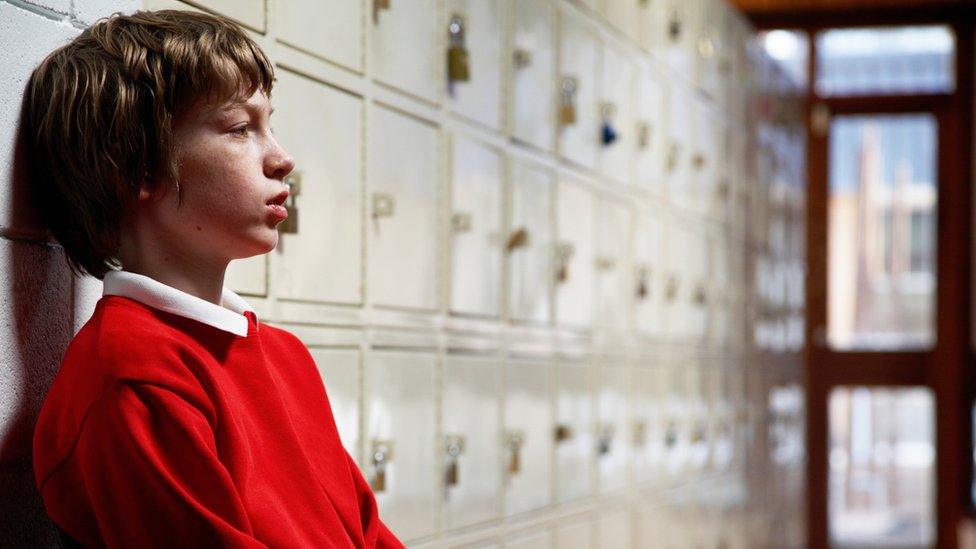Off to 'big school'? Some pupils need extra support, says Ofsted
- Published

Primary schools should identify pupils whose behaviour may be at risk of deteriorating when they reach secondary school, a report for Ofsted suggests.
Head teachers told Ofsted some pupils could struggle more than others with the move to "big school" and might benefit from extra support.
This could be offered to help minimise the risk of such pupils misbehaving when they arrive, they said.
It comes as thousands of pupils have just started secondary school.
England's education watchdog, Ofsted, has announced a new push on behaviour management for teachers.
Small to big
Ofsted says it will be adopting a new focus on behaviour management when it inspects teacher training providers.
Its aim is to ensure that teachers are well trained in principles of behaviour management, so that all pupils can be offered quality education.
Poor behaviour is increasingly seen as a communication of need, rather than a child simply being badly behaved.
Ofsted chief inspector Amanda Spielman said: "Positive behaviour needs to be taught as early on as possible, and expectations raised as children get older.
"Moments of transition, from an early years setting to primary school, from primary to secondary, or from one school to another, are very important.
"Leaders talked about the value of managing transition to make it as smooth as possible," she said.
"For some pupils, going from a relatively small primary community, where you're known by everyone and where you have a close relationship with a small number of teachers, to a much larger secondary school with several teachers, will be particularly challenging," she added.
"The schools in our sample felt that it was important to identify pupils who were particularly at risk well before they started secondary school, so that they could provide appropriate support and prepare them for life in the 'big school'. "
Exclusions
The aim is to prevent pupils from falling behind as they struggle with the transition, which head teachers said could lead to a spike in challenging behaviour.
But the report was keen to point out that early identification of potential issues should not result in secondary schools discouraging entries from certain pupils.
Ms Spielman is clear that good behaviour benefits everyone, by providing a positive setting for learning.
Ofsted spoke to head teachers and senior staff in 45 schools to gather information for its report.
It comes after an outcry over rising rates of permanent exclusions in England.
Education Secretary Gavin Williamson said: "A single instance of bad behaviour, whether it's messing around with a mobile or talking over the teacher, can disrupt learning for every child in a class.
"That's why I'm keen that we empower teachers to deal with low-level bad behaviour, and this move from Ofsted helps us do just that."